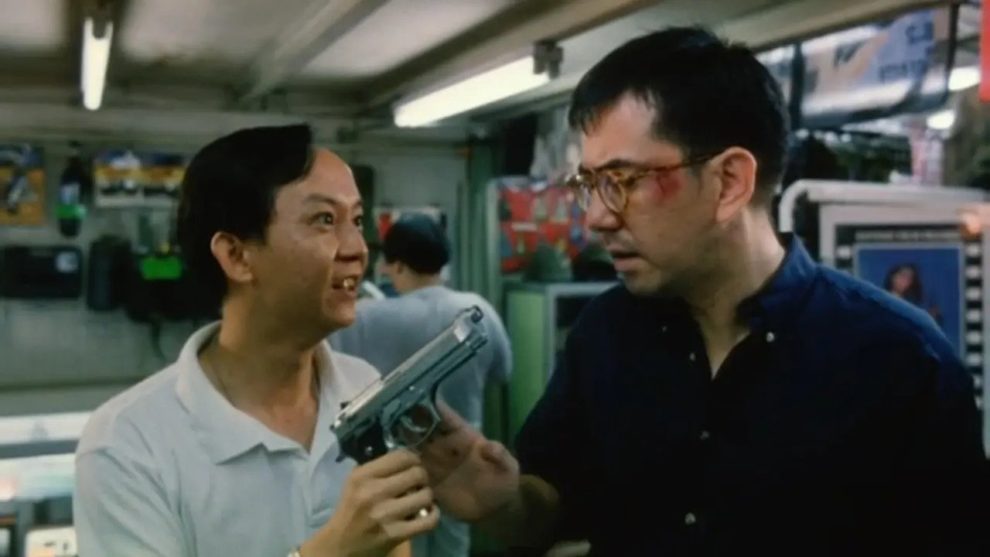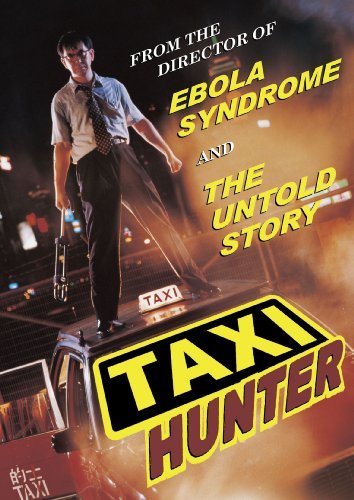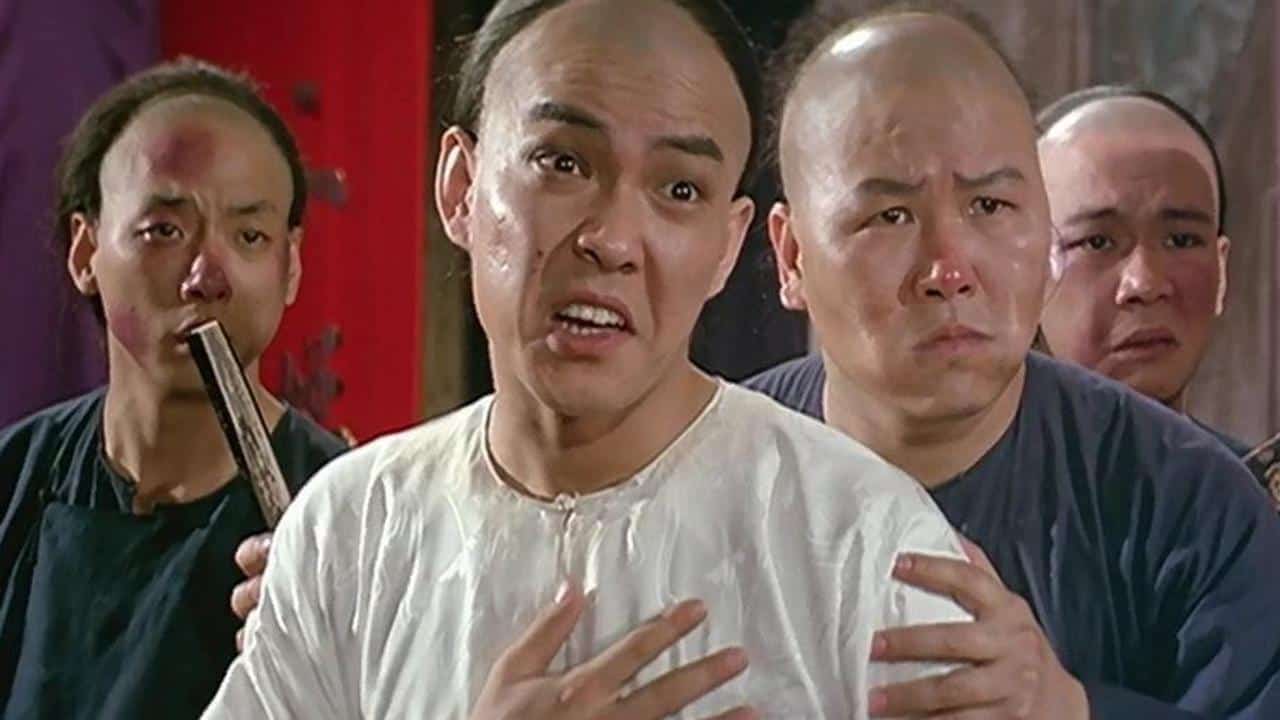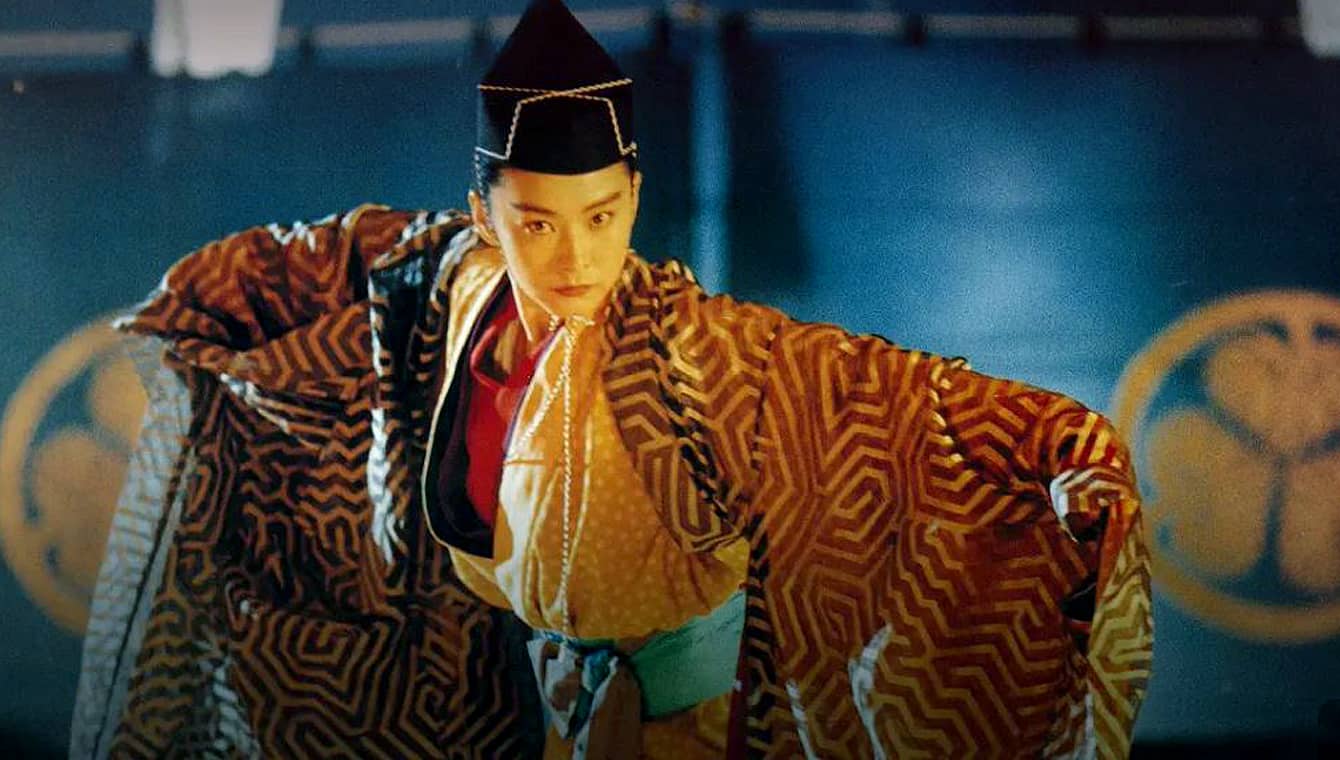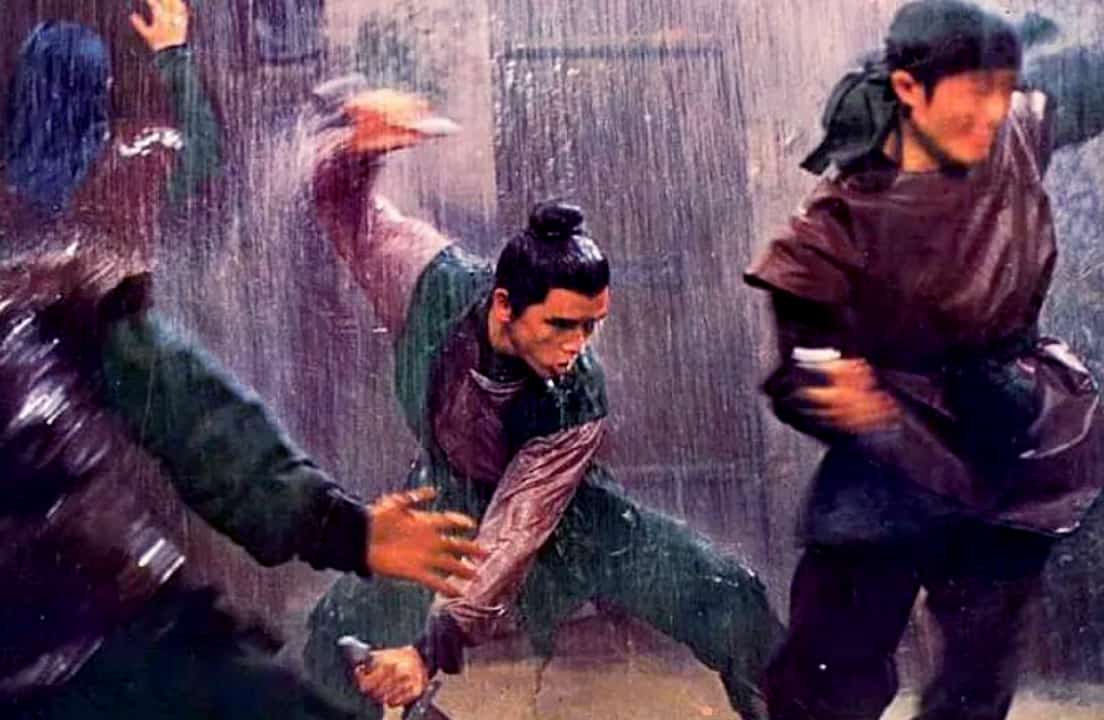A Herman Yau feature starring Anthony Wong comes complete with its own level of expectation. You know that Anthony Wong is going to go crazy eyes at some point, it's just a case of when and how far is he going to go. A title such as “Taxi Hunter” is a clue that this is going to fit into that expectation. Yet, whilst the pair don't disappoint, the film does offer a bit more than the norm.
Buy This Title
on Amazon by clicking on the image below
Insurance salesman Kin (Anthony Wong) lives a peaceful live with his pregnant wife until one evening she is killed by a negligent taxi driver. Completely broken despite the support of Yu (Yu Rong-guang), Kin descends into despair. One day whilst eating lunch, he sees a woman being accosted by another taxi driver. He walks over and slaps him to the applause of the passers-by. Shortly after, he murders another one after getting into an argument on a journey home. Shocked by the events, Kin is initially traumatized but slowly finds himself taking violent action on the drivers he sees acting reprehensibly. Purchasing a gun takes it to another level as Kin begins to embrace his deeds. In the meantime, Yu (who is a policeman) has his partner Gao (Ng Man-tat) go undercover as a taxi driver to investigate the rising death tally. The search is fruitless until finally Kin gets into Gao's cab.
This is Anthony Wong's vehicle (pun unintended!). It's a performance in two parts. Initially it's a quieter, more restrained portrayal as we get to see his fairly mundane life. Once the tragedy occurs, we get more of the Category III Anthony Wong, slowly starting to embrace the violence after initially being shocked by his actions. There are streaks of dark humour, the montage of him learning to fast draw his gun for example does provoke laughs. This is interspersed with the camera focusing purely on his reactions after some of the killings. With the first, there is panic and shock, but latterly there is a smile that indicates an enjoyment of his vigilantism. It's a more sympathetic portrayal and the construction of the plot always serves to make the victims more and more reprehensible and thereby, justifying their fate.

As a consequence, it does make it hard for the other actors to get any leeway. Yu Rong-guang (alongside his “Rock n' Roll Cop” cop co-star) is very much the straight man here. His character is given an electric opening introduction. Fighting bank robbers from the top and then bonnet of a speeding taxi getaway. After that, he gradually merges into the background until the finale. Ng Man-tat's Gao appears to have wondered in from another movie entirely. His broad portrayal as Yu's partner is so out of place it just feels awkward. I get he is the comic relief but it just doesn't gel and becomes grating very quickly to this viewer.
The whole piece has a 1970's Death Wish vibe. Wong's look resembles Michael Douglas in “Falling Down” (another salary worker breaking down). The vigilante genre that followed “Death Wish” usually followed the same template. Normal law abiding citizen drawn into violence after tragedy with the police seen to be ineffective in obtaining justice by legal means.The victims here are loathsome; we only get one taxi driver that comes across as humane (almost as a counterbalance). The rest are avaricious, violent rapists that are set up to deserve their fate. This creates a right wing feel with the actions of the protagonist justified by what they see around them. Again this is what we get in “Taxi Hunter”. Revenge is seen to be the correct course. The further Kin descends into violent retribution, the more it seems to liberate him and allows him to express his sense of loss. So as a viewer it creates an interesting quandary. As we side with Kin, are we endorsing his approach? It does ask a question about our enjoyment of seeing them punished. It's the problematic challenge with all vigilante movies in where there is a line that gets crossed. “Taxi Hunter” does actually address this inadvertently with the use of an undercover cop as a driver. It is inevitable that Kim will come across them and so the moral quandary then takes a greater focus. With a number of East Asian markets requiring the punishment of law breaking at the conclusion, we know from the outset this will not end well. Though the ending doesn't quite go the way you would expect.
Given other Herman Yau\Anthony Wong collaborations, this is a slightly more restrained feature by comparison. It's nicely judged in pacing and allows time for the central character to develop. The action, when it comes, is for the most part swift and like many a vigilante, Kin almost becomes a slasher movie villain with the death he brings. Yet Yau takes time to point out he is not an invincible one as gets beaten up several times. With a lot of the film shot at night, it has a horror movie vibe at points. Yau is actually a decent director behind the surface outlandishness of the Category III works and I thought this was a well-constructed piece.
To anyone watching this for the first time. Do not expect another “Bunman”. Yes, this is the same creative team but it has a completely different feel. If you can ignore the performance of Ng Man-tat. you will get a really well put together revenge thriller with sufficient blood and violence to keep the gore hounds satisfied but also enough nuances to elevate it above the usual conventions. A very good Anthony Wong performance that doesn't veer off too much into the outlandish adds to the pleasures of what is for me is an unexpectedly good film.


